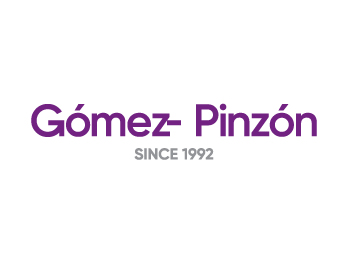On July 23, the Congress of the Republic issued Law 2024 of 2020, through which payment measures are adopted in fair terms in the commercial field, in order to protect natural or legal persons constituted as micro, small or medium companies that have a disadvantageous position in relation to the procedures and terms of payment and invoicing of their business operations. The scope of application of this rule excludes operations between large companies or when the latter is the recipient of the payment.
This rule represents one of the government’s initiatives to protect one of the most important sectors for the Colombian economy, micro, small and medium-sized enterprises (MiPymes). Through the measures established in the 2024 law, it is intended that the large company does not leverage its working capital in the Mypme, forcing them to contract onerous loans with the banks to cover their costs and operating expenses. The aim is to improve portfolio rotation in order to reduce the working capital required by MSEs. On the other hand, the measures also encourage entrepreneurship, employment and the construction of a business fabric, establishing more favorable conditions for the creation of new companies and to preserve the continuity of existing ones.
The measures adopted apply to all payments made as consideration in commercial businesses, as well as those made between main contractors, their suppliers and subcontractors. The following are expressly excluded from the scope of the standard:
- Transactions or operations involving consumers;
- The interests and payments due for damages, securities or contracts in which the deferred payments are inherent to their essence (such as the payment of credits);
- debts submitted to bankruptcy or restructuring procedures; and operations between large companies.
As of January 1, 2021, a gradual transition process will be applied for private companies regarding the term for the payment of obligations, in the following terms, counted from the date of receipt of the goods or termination of the provision of services:
- First year: maximum 60 calendar days
- Second and subsequent years: maximum 45 calendar days
Regarding commercial operations carried out within the framework of the General System of Social Security in Health, the maximum and definitive term for the payment of obligations will be sixty (60) calendar days, which will apply from the first (1) January 2022.
In the case of contracts or obligations contracted with State entities (as contractor), payments must be made within a maximum period of sixty (60) calendar days following the acceptance of the invoice.
The terms described above are mandatory and cannot be negotiated by the parties. Any agreement that extends these deadlines or that seeks to limit the liability of the debtor for their breach will be in writing and will not have any legal effect.
Regarding the processes of invoicing and payment of obligations, both for private companies and public entities, in cases in which the fulfillment of some management by the contractor is required, such as, the verification of the conformity of the goods or services provided, verification of invoices and / or supporting documents, this must be done within the maximum period, without the possibility of extending it. In the event that the contractor is required to make any correction and / or correction, said request will interrupt the period until the requested correction is made. Under no circumstances can you claim your own fault, including the fault of your employees or dependents, or your billing and payment procedures to avoid liability for non-compliance.
As a sanction for non-compliance, the norm provides that when the contracting party is in default due to the expiration of the fair payment term, for reasons other than unforeseeable circumstances or force majeure, the creditor will have the right to claim compensation for all the costs of duly accredited collection that has been incurred due to the delay of this, which may be, judicially collected through an executive process or object of conciliation, transaction or any other alternative mechanism of conflict resolution, in relation to the form and terms of payment and forgiveness.
The exposed regulations aim to achieve several objectives; On the one hand, it seeks the protection of employment in Colombia by leveling the economic burdens that are generated for micro, small and medium-sized companies in Colombia, which represent more than 90% of the national productive sector and generate 80% of employment in Colombia < ahref = "#_ ftn1" name = "_ ftnref1"> [1] .
In addition to the above, it must be taken into account that, under the protection of this rule, compliance in payments within the business environment is distinguished, becoming a tool of distinction for companies and monitoring and control by the State.
Finally, it seeks to strengthen entrepreneurship initiatives, through the establishment of a regulatory framework that encourages the creation of new products and services, that guarantees their sustainability over time and that encourages their expansion, including in this aspect also entities officials as actors obligated to comply with the norm.
By Antonio Elcure , associate of the Practice Group Banking, Finance & amp; Capital Market,
and Felipe Arango, a student of the Gómez-Pinzón Abogados Seed Plan.
————————————————– ————————————————– ——-
[1] https://www.mintrabajo.gov.co/prensa/comunicados/2019/setember/mipymes-representan-mas-de-90 -of-the-national-productive-sector-and-generate-80-of-employment-in-colombia-minister-alicia-arango

